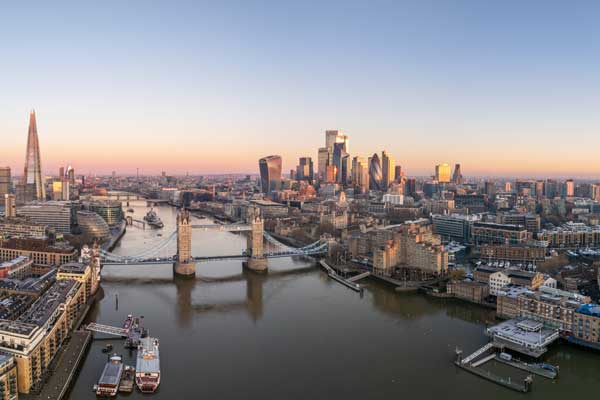For many organisations, resilience becomes a priority only in the wake of disruption. However, the risk landscape is becoming increasingly complex, from cyber threats to climate-related emergencies, therefore, proactive planning is sensible.
On 19 June, Resilience First held the second session of the London Business Network for Resilience programme, supported by the Greater London Authority, it brought together local authority emergency planners, Borough Resilience Forums (BRFs), and business networks to strengthen collaboration, share best practices, and deepen understanding of national risks and how they affect local business communities.
The event featured insights from both public and private sector leaders, including the following speakers:
- Cliff Fleming, Resilience Manager, Greater London Authority
- Emma Scrivener, Deputy Head, National Risks and Coordination Team, Cabinet Office
- Daisy Walton, Civil Contingencies Officer, Tower Hamlets
- Gareth Morgan, Resilience Team Leader, Westminster City Council
- Val Beirne, Head of Public Realm, We Are Waterloo
- Hasanul Hoque, Operations Director, Camden Highline & Camden Town Unlimited
A recent report from Business in the Community, in partnership with London Resilience, revealed important gaps:
- Only 36% of business networks were aware of their Local Resilience Forum (LRF).
- Just 38% knew about local risk registers.
- However, 98% expressed interest in greater engagement with LRFs.
These findings underscore the need to raise awareness, promote early involvement, and build proactive relationships before emergencies strike, goals that the London Business Networks for Resilience programme aims to achieve.
Borough Resilience Forums (BRFs)
BRFs are responsible for multi-agency emergency planning at the local level.
Each BRF regularly convenes to discuss, plan and test emergency response plans, maintains a borough-specific risk register, works with the London Local Resilience Forum and the Mayor’s Office and encourages participation from local businesses and stakeholders.
Tower Hamlets
Tower Hamlets faces unique challenges due to its dense population, high-rise housing, and socioeconomic vulnerabilities. The borough’s emergency planning team leads a multi-agency approach to risks ranging from fires in purpose-built flats to community safety concerns, including anti-social behaviour and heat stress.
The BRF works with the police, fire brigade, NHS, housing providers, and private partners like Canary Wharf Group to prepare for and respond to incidents, from small service disruptions to large-scale emergencies like crane collapses or unexploded ordnance.
Business engagement is still developing, but is crucial. Early collaboration allows faster response and stronger recovery, rather than reactive contact during crises.
Westminster
Westminster is home to some of the UK’s most high-profile institutions, events, and businesses making resilience planning a top priority. The Westminster BRF brings together emergency services, local businesses, utility providers and voluntary sector partners to prepare for a wide range of risks, from public disorder to extreme weather.
The BRF meets quarterly and runs regular training and multi-agency exercises. It collaborates closely with Business Improvement Districts (BIDs), including West End Security Group representing over 14,000 businesses, to ensure two-way communication and effective local response.
Learn more about preparing your business for emergencies | Westminster City Council
10 recommended actions for business networks:
- Contact your BRF – ask how to participate in meetings and join their mailing list
- Visit NRR 2025 and GOV.UK Prepare – learn the most serious risks facing the UK and how to prepare for an emergency.
- Access your borough risk register – understand your local risks.
- Develop a business continuity plan – review annually.
- Nominate staff for training, including ACT (Action Counters Terrorism) and SCaN (See, Check and Notify).
- Tailor preparedness training to a specific audience – make it relevant to them.
- Build relationships now, especially with local authorities.
- Sign up for local alerts – be in the loop for flood, heat, and other warnings.
- Join exercises and simulations with local partners – test your response capacity before it’s needed.
- Promote access to “cool spaces” and ask businesses to sign up, as well as share how to beat the heat, hot weather advice from the government.
Resilience is a shared responsibility. By investing in early engagement, transparent communication and inclusive planning, businesses can contribute to a safer, more resilient London.
“Once the hi-vis and flashing lights have gone… how do we really build the community back stronger? That’s where involving business networks becomes absolutely crucial.” Daisy Walton, Civil Contingencies Officer, Tower Hamlets



